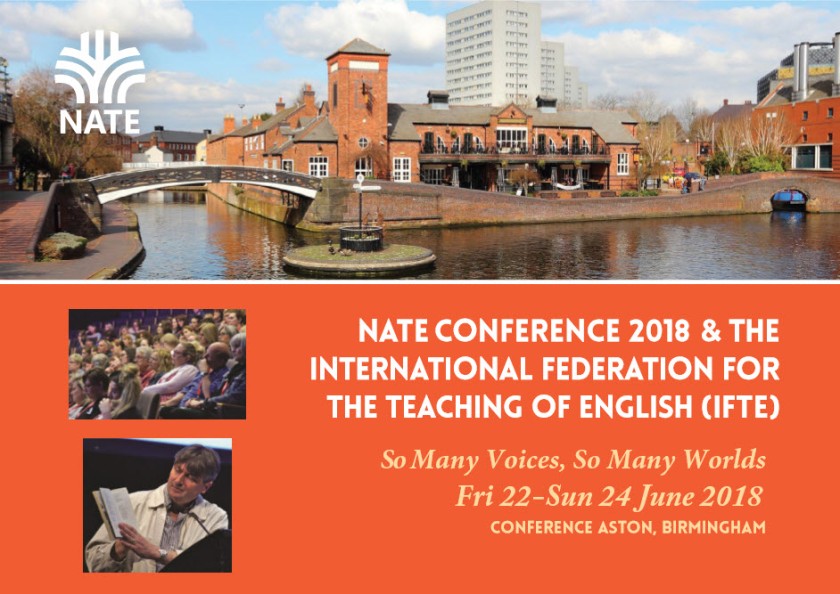SATE has been very quiet over the last year as the volunteers who organise it have had to concentrate on their own professional targets. However, we’re looking at reviving in some form the seminars and workshops we ran successfully for over three years, and at creating some impetus in bringing English teachers in Scotland together to discuss issues which affect them.
First, we’re rebranding. We are continuing our association with The National Association for the Teaching of English (NATE) which supports us logistically in our work, and we will therefore become NATE (Scotland). However, we also want to develop a unique voice for Scottish teachers, and so while we still feel membership of NATE is desirable and would recommend it highly, we will concentrate less on recruitment and more on professional dialogue. Therefore, anyone, NATE member or not, will be very welcome at any of our events.
Secondly, in the past, SATE offered workshops which entailed a fee, to cover speaker’s expenses and catering. We would like to move towards a largely free seminar programme, hosted by interested departments around the country and delivered by enthusiastic English teachers who have a story to tell. This has been a format which has been hugely successful for Teach Meets and Pedagoo events, and we’d like to try the same approach.
To do that, we need presenters willing to donate an hour or so of their time after the school day to talk to colleagues about their interests. This might be a teacher or, indeed, a whole department who would like to share and discuss their experiences of, for example, teaching texts or the delivery of aspects of the BGE curriculum; it may be individuals engaged in Masters research who would like to test their ideas in a supportive forum; or it may be organisations such as the SQA interested in disseminating information about best practice.
We already have a number of possibilities. Raymond Soltysek, former lecturer in English ITE at the University of Strathclyde and NATE (Scotland) coordinator, would like to talk to teachers about Reading for Understanding, Analysis and Evaluation, sharing some of his thoughts and strategies. He is willing to offer this in three venues, anywhere in the country. Alan Gillespie, Principal Teacher of English at Fernhill School and renowned author (you can support his novel The Mash House here) has offered a workshop on stimulating creative writing. Lastly, Raymond Soltysek and Leanne Welsh can offer a repeat performance of their NATE 2019 conference workshop on Reader Response and dialogic strategies in the classroom.
If you have any ideas for something you would like to offer in a NATE (Scotland) seminar or have suggestions of what you would like us to offer, please get in touch using the email link on this website.
Of course, we also need English departments willing to host a NATE (Scotland) seminar. What we would require is a room with IT or audio visual equipment between 4.30pm and 6.30pm on a weekday. It would be great if host departments could offer tea and coffee – and even some biscuits! – but attendees would be encouraged to bring their own refreshments with them. And, obviously, some publicity around local schools to encourage colleagues to come along would be fantastic.
If you would like to offer to host a NATE (Scotland) seminar, again please contact us using the email link on this website. We’d love to hear from you.
We are open to any and all ideas that will help build a strong community of English practitioners. One member has suggested a NATE (Scotland) You Tube channel, showing webinars from practising teachers on aspects of policy and practice that can be easily accessed for CPD or Departmental Meetings. If you think this is a good ideas and would like to offer a You Tube seminar or if you know of someone you think could offer some advice that you would like to hear, let us know and we’ll try to arrange it.
Best wishes
All at NATE (Scotland).

